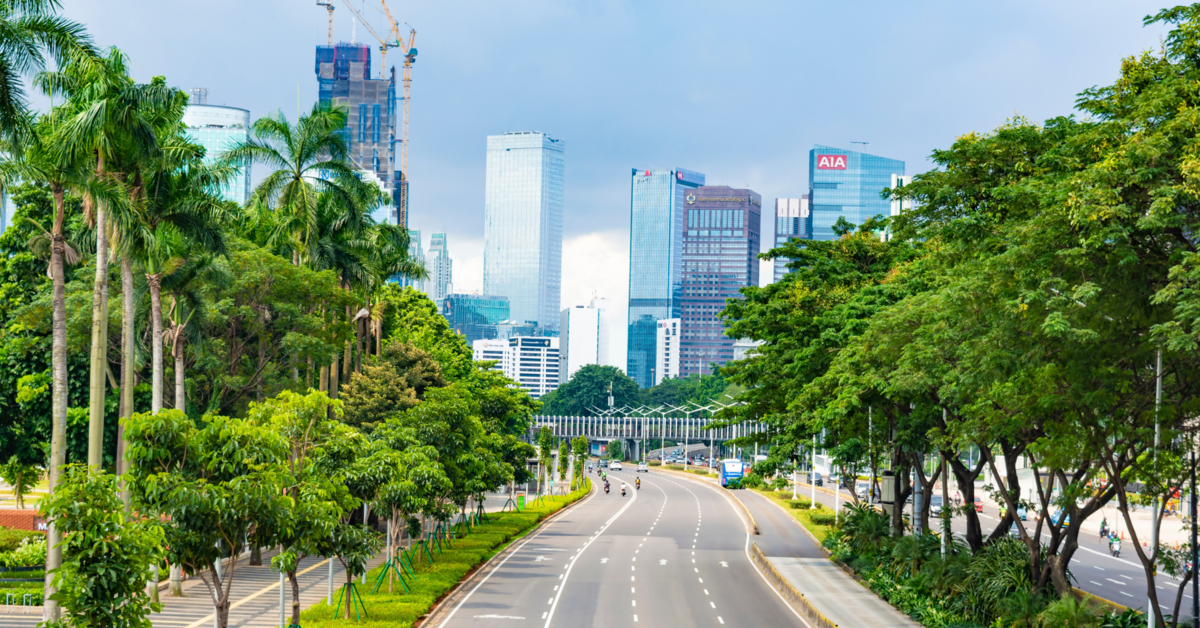Indonesia is the world’s largest exporter of crude palm oil (CPO), and the developments in the market can have a significant impact on companies around the world who rely on CPO for a wide range of products.
The Indonesian government currently seeks to increase Crude Palm Oil (CPO) export volume through a series of policies that lay out incentives and regulatory actions. Three export regulations recently implemented include: 1) the Minister of Finance’s CPO export tax waiver until October 31, 2022 (PMK 130/2022); 2) CPO Reference Price mechanism of the Ministry of Trade (Permendag 46/2022); and 3) CPO export duty threshold (PMK 123/2022) issued by the Minister of Finance.
These policies will impact exports because it can determine the administrative costs for CPO exports. They also affect business decisions related to CPO volume for exports. Through these actions, the Government of Indonesia is trying to boost CPO exports while maintaining stable state revenues from the export duties.
Temporary CPO export bans in April and May led to dynamic changes in government policies
Two outcomes of CPO export ban in April and May of this year include a: decrease in the Fresh Fruit Bunch (FFB) selling price amongst smallholders and the loss of the state income.
The government issued the first temporary CPO export ban on April 28, 2022 due to scarce domestic cooking oil supplies that caused an average 43% price hike of the commodity price domestically. Because of the export ban, CPO producers and manufacturers experienced over-capacity in inventories and that caused them to refrain from buying FFB from smallholders. Protests emerged from millions of small farmers whose livelihoods were impacted as the FFB selling price had fallen by 40-70% below the price floor set by the government. Furthermore, the export ban was reported to have caused a government revenue loss of USD 3 billion per month since the beginning of the export ban was implemented. This outcome led to the revocation of the palm oil export ban on May 23, 2022.
Since the export ban was revoked, domestic palm oil stakeholders have been pressuring the government to boost the smallholders’ FFB selling price and accelerate CPO export activities. To resolve the issues, the government introduced a policy that waived the CPO export tax in July 2022 and that boosted the FFB selling price by USD 0.13/kg by August 2022. It almost reached the government’s target of USD 0.135/kg, but still far from April selling price of USD 0.2/kg. Because of this, the waive was extended to October 31st, 2022, to maintain export momentum.
At the same time, the global CPO price has been declining since June 2022. The global demand for Indonesia’s CPO, especially from China, has declined, while Malaysia experienced its CPO peak production season in June. The CPO price declined further in August 2022. The Trade and Finance Ministries were urged to re-adjust their CPO export strategies to compensate for the decreasing CPO export duty caused by the CPO price drop.

CIF Rotterdam Price Index for CPO. Source: GAPKI
Strategy adjustments were reflected in the release of the Trade Minister’s Permendag 46/2022 announcement on August 1st, 2022, where CPO Reference Price mechanism was established to adjust export levies based on global CPO market price trends. Complementing the Trade Ministry’s mechanism, the Finance Ministry also lowered the export duty threshold following the decreasing global price. As the Trade Ministry decreed the CPO Reference Price at USD 846.32/Metric Ton (MT) , the adjusted threshold enables an increase of USD 34/MT in export duty fees compared to the previous threshold.
A description of the total rate for exporting CPO from Indonesia according to the Finance Ministry’s threshold can be accessed here.
Reactions from industry players and farmers
Palm oil businesses and oil palm farmers generally support the CPO export levy waiver, yet they are still concerned about the state of the industry. The largest palm oil industry organization in Indonesia, the Indonesia Palm Oil Business Association (GAPKI), had called on the government to maintaining export incentives due to the slower global market situation. That concern resonated with projections from Indonesia’s Institute for Development of Economics and Finance’s (Indef) that stagflation occurring in other countries would continue to weaken the CPO market.
Meanwhile, smallholder associations are concerned by volatility and differences in the selling price of Fresh Fruit Bunch (FFB) in different locations in Indonesia. The FFB selling price is also prone to another free fall once the CPO export levy waiver ends on October 31, 2022. Therefore, Indonesia Palm Oil Farmer Association (Apkasindo) recommends that the government update the existing FFB selling price mechanism issued by the Ministry of Agriculture (Decree No. 01 of 2018).
Current situation and expected developments
Weakening global market
In addition to the Government’s mission to boost CPO export volume, the overall export value is also a key measure of Indonesia’s trade performance. CPO exports are especially important for Indonesia as they generate around USD 18.76 billion in revenue for the country. However, continuous weakening of global CPO demand has become a concern for the government as it has also meant a decrease in Indonesia’s collectable CPO export duty payments.
The government is working hard to maintain the CPO export momentum as the FFB selling price amongst smallholders had yet to reach its target before the ban in April. The FFB selling price is prone to regulatory shocks and export market demand. A stable supply from the smallholders and steady purchasing power for the CPO industries is dependent upon the price mechanism. There is concern that the government’s program to increase exports amid a weakening global market may hurt the domestic industry’s productivity.
Expected developments
On top of the current commercial situation faced by the Indonesian CPO stakeholders, negotiations on Foreign Trade Agreement (FTA) between Indonesia and selected trade partners, the national biodiesel development program, and green financing commitments resulting from various international initiatives (like G20 and COP) can also affect Indonesia’s CPO exports. The recent recovery in Indonesia’s CPO exports is coming from purchases made by China and India. Both countries have said they will increase their CPO imports from Indonesia up to 3.5 million tons in total.



